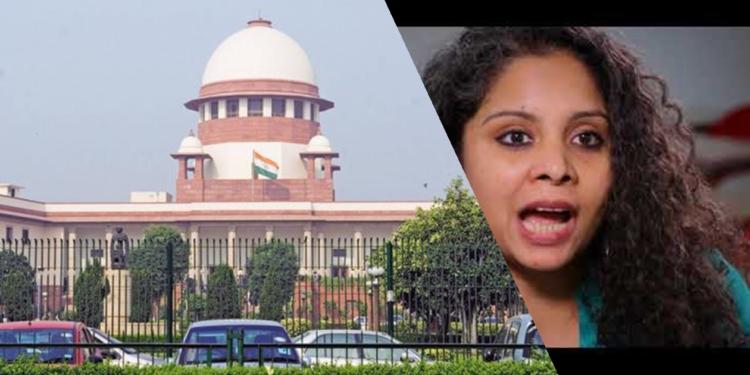The Supreme Court on 5th July overturned the judgment of Gujarat High Court in the Haren Pandya murder case delivered on August 29, 2011. On an appeal filed by the CBI and the Gujarat police, the apex court headed by Justice Arun Mishra convicted the 12 accused in the case. Along with this pronouncement, the apex court also dismissed the petition seeking court-monitored fresh investigations into the case, which was using the controversial journalist Rana Ayyub’s book as a basis for corroborating the prayer.
Home Minister Haren Pandya was murdered on March 26, 2003. Gujarat High Court had acquitted the 12 accused, convicted in trial court in 2007, stating the investigation was “botched” and “misdirected”. Accordingly, an appeal was filed, with the CBI firm on its resolute that the former home minister was murdered to avenge the 2002 communal riots in the state.
The main accused in the case, Asghar Ali, had admitted to their plan to attack prominent Hindu leaders of Gujarat to avenge the 2002 riots. On the basis of this larger conspiracy, the accused were convicted by a special POTA court. According to CBI, the offenders were sent to Pakistan and trained by Pakistan’s intelligence agency, ISI.
In spite of the overwhelming evidence, a PIL had been filed in the Supreme Court by Centre for Public Interest Litigation(CPIL) seeking fresh investigations into the case. The petition relied upon the book by Rana Ayyub titled, “Gujarat Files – Anatomy of a coverup”. Based on the findings in the book and some other articles, advocates Shanti Bhushan and Prashant Bhushan had argued on behalf of the petitioners, praying for fresh investigations in the case.

The Supreme Court, however, found no merit in the petition based on Rana Ayyub’s findings. In the judgment, the apex court clearly mentions that the “book by Rana Ayyub is of no utility. It is based upon surmises, conjectures, and suppositions, and has no evidentiary value.” By stating Rana Ayyub’s book is nothing more than an opinion, lacking hard facts, the court stated, “The opinion of a person is not in the realm of evidence.” Also questioning the notions that the entirety of the left-liberal cabal had adopted in the wake of the release of book, putting it on the highest pedestal as though truer words had never been spoken, the apex court also stated, “There is a likelihood of the same being politically motivated, cannot be ruled out. The way in which the things have moved in Gujarat post-Godhra incident, such allegations and counter allegations are not uncommon and had been raised a number of time and have found to be untenable and afterthought.”
Essentially, the Supreme Court summarized that the book by Rana Ayyub book is her own opinion, could potentially be out of political motivations and in no way can be used to represent reliable, authoritative facts. The Supreme Court thus dismissed the petition and also imposed a fine of Rs 50,000 on the petitioners.
The fact that Rana Ayyub’s book was being regarded as an extremely authentic account of facts on Gujarat riots, has led to this situation. The petitioners were taken in by the mass hysteria that prevailed after the book had been published and trusted it to such an extent that they thought of using it to petition for the offenders in front of the highest judicial authority in the country. The Supreme Court has rightly treated the book for what it is- politically motivated opinions and nothing more.

























